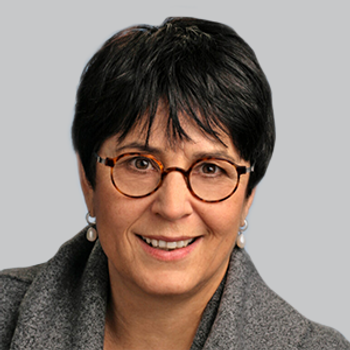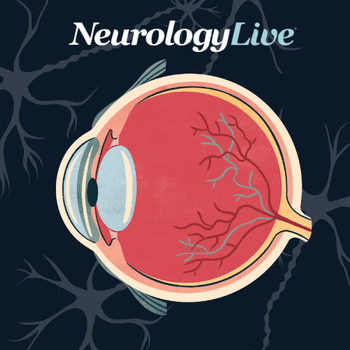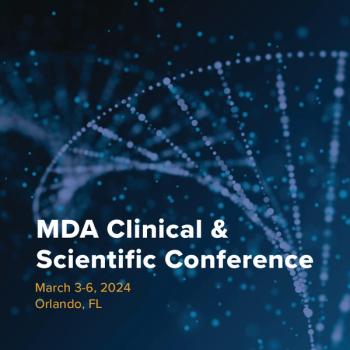
Although results from the phase 2 LixiPark trial showed that lixisenatide may slow motor symptom progression in early Parkinson disease, reported gastrointestinal adverse effects raise some safety considerations.

Isabella Ciccone, Content Associate, NeurologyLive®, has been with the team since September 2022. Follow her on X @iciccone7 or email her at [email protected]

Although results from the phase 2 LixiPark trial showed that lixisenatide may slow motor symptom progression in early Parkinson disease, reported gastrointestinal adverse effects raise some safety considerations.

Amylyx Pharmaceuticals’ AMX0035, despite its safety profile, did not show significant efficacy among patients with amyotrophic lateral sclerosis in the phase 3 PHOENIX trial.

Allison Verhaak, PhD, a clinical psychologist from Ayer Neuroscience Institute at Hartford Healthcare Headache Center, shared her insights on a recent study that explored cannabis use among patients with headache and migraine.

As part of our monthly clinician spotlight, NeurologyLive® highlighted multiple sclerosis expert Scott Newsome, DO, MSCS, FAAN, FANA, director of the Stiff Person Syndrome Center and professor of neurology at Johns Hopkins Medicine.

A recent study presented key predictors of survival in patients living with Friedreich ataxia, which led to the creation of a prognostic model for disease management.

Newly approved treatments in neuromyelitis optica spectrum disorder have shown efficacy in recent years, yet unaddressed concerns voiced by clinicians and patients living with the disease remain.

A recent study revealed that digital composite measures for bradykinesia outperformed traditional assessment methods for Parkinson disease over a 12-month period.

At AD/PD 2024, AC Immune SA presented an update on the company's phase 2 VacSYn trial assessing ACI-7104.056, an anti-α-synuclein active immunotherapy, for patients with Parkinson disease.

The director of the Adult Genetic Epilepsy Program at the University of Toronto talked about the significant challenges posed by transitioning patients with epilepsy from pediatric to adult care settings.

The approval is supported by phase 3 data which showed ravulizumab-cwvz met its primary end point of time to first on-trial relapse, with no relapses observed in 58 patients with NMOSD over a median treatment duration of 73 weeks.

Branded as Duvyzat, givinostat is the first nonsteroidal drug approved to treat patients with all genetic variants of DMD.

Recent data highlighted the benefit of Gain Therapeutics’ GT-02287 mechanism of action in alleviating endoplasmic reticulum stress and enhancing lysosomal enzyme activity.

A phase 2a trial demonstrated significant cognitive improvement in patients with mild cognitive impairment or mild dementia from Alzheimer or Parkinson disease through combination adrenergic activator therapy.

In collaboration with Robert A. Hauser, MD, MBA, the survey aims to understand the impact of tremors in patients with Parkinson disease.

Revance’s daxibotulinumtoxinA-Ianm (Daxxify) is the first and only approved peptide-formulated, long-lasting neuromodulator for patients with cervical dystonia.

New findings from a phase 1 trial presented at AD/PD 2024 showed that UB-312 antibodies decrease α-synuclein levels in the cerebrospinal fluid of patients with Parkinson disease.

A recent analysis of a phase 2 trial showed that repeated intrathecal injections of MSC therapy led to significant reductions in serum biomarkers and improvements in neurological function for progressive MS.

The FDA recently issued revised draft guidance to assist drug companies in developing treatments for early Alzheimer disease, focusing on diagnostic criteria, clinical staging, and outcome measures.

New findings from a phase 1b/2a study showed that NodThera's NT-0796, an oral NLRP3 inflammasome inhibitor, reduced inflammatory biomarkers among patients with Parkinson disease.

The national medical advisor for the Parkinson's Foundation discussed the importance of continuous and ‘spaced’ physical therapy for Parkinson disease, highlighting the underutilization of this approach.

A recent analysis revealed a significant association between neuromyelitis optica spectrum disorder and connective tissue disease in patients diagnosed or suspected with Sjogren syndrome.

A recent study showed that a short self-screening questionnaire boasted high sensitivity and specificity for identifying psychosis among patients with Parkinson disease.

A meta-analysis on studies assessing FDA-approved dual orexin receptor antagonists for insomnia treatment highlighted a greater risk of adverse events, particularly for narcolepsy-like symptoms.

In recent news, the FDA has issued a complete response letter for Vanda Pharmaceuticals' tasimelteon for treating insomnia because of identified deficiencies and cannot be approved in its current form.

Catch up on any of the neurology news headlines you may have missed over the course of February 2024, compiled all into one place by the NeurologyLive® team.

New data from the phase 3b ENHANCE trial presented at ACTRIMS Forum 2024 demonstrated the smooth transition from intravenous anti-CD20 therapy to ublituximab in patients with multiple sclerosis.

Findings from the recent phase 3b SMART trial affirm the safety and efficacy of intravenous onasemnogene abeparvovec (Zolgensma; Novartis) in spinal muscular atrophy when patient weights range from 8.5 kg to 21 kg.

A machine learning model applied to real-world data in a multiple sclerosis study increased patient inclusion for future real-world studies on assessing patient outcomes and disability progression.

A recent study presented at MDA 2024 highlighted the evolving respiratory patterns in pediatric patients with Duchenne muscular dystrophy, offering crucial insights for effective respiratory management in this patient population.

A recent analysis of data from the US National Registry presented at MDA 2024 revealed gender disparities in pediatric-onset facioscapulohumeral muscular dystrophy, with girls experiencing more severe outcomes.